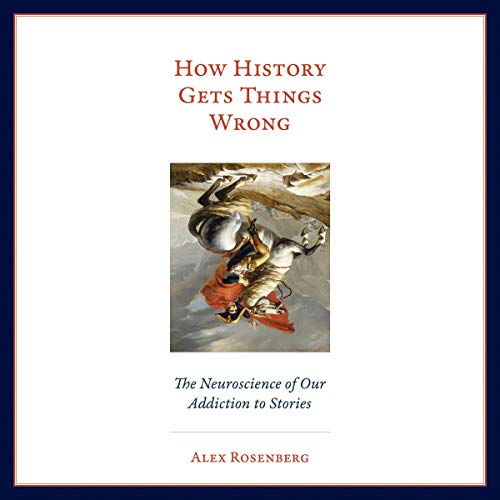We need to rethink how we talk about startup (and life) success. This book is a good starting point.
I’m going to start writing more about the books I’ve read, interesting things I’ve learnt that I think you’ll find useful too. I’ve got a goal of hitting 36 books this year, so about 3 per month (I never used to read this much FYI, I consider myself somewhat a ‘late avid reader’ and want to get up to 4-5+ books per month some day).
I’m mostly reading/listening to a lot of non-fiction* and anything that helps me understand whats going on across lots of different subjects. And naturally, things that perk my interest.
Which brings me to Alex Rosenberg’s book, How History Gets Things Wrong, is a fascinating exploration of a subject I’ve always been intrigued by which is, how much can we actually learn from history? And is this useful knowledge?
This book is a doozy as it dives into extreme detail on a variety of subjects that affect everyone one of us:
- All ‘narrative history’ is wrong, i.e. most history books and many news articles. It’s a topic I had no idea was so hotly discussed by historians and essentially it is the story we put behind what someone was thought and believed and why they did what they did – the problem is this is not verifiable data. There is no way this is ever verifiable (unless you have a way of capturing this exact brain state..maybe), even if you hear it from the person’s mouth it’s probably not quite right (as psychology has shown). As the book says, narrative history is “neither factual, nor proportional, nor stable”.
- We’re all ‘mind readers’ – the need to put purpose and story around what other people do which we believe originates from need to work together as hunters and gathers, this makes us “hyper-active agency detectors”, the need to add meaning to everything, which is not useful in the way we live today!
- Neuroscience suggests the Theory of Mind (philosophical/psychological way we think about how we give meaning to things) is only partially correct, in that humans are “means-ends” systems, but the rest of it is wrong. We “manufacture” many ‘belief’ and ‘desires’ pairings to explain why we behave the way we do – and neuroscience (so far) shows its completely bogus, our brains don’t seem to have beliefs or desires the way we thought it would. Thus, you end up with wrong and bad explanations for knowledge you want to use in the future.
The summary conclusion? ‘Theory of mind’, and thus narrative history, needs to be “banished” from history, psychology and philosophy as the default way to explain human behaviour as it is wrong.
But how exactly we go about doing this will be very difficult and what we replace it with is unknown – put simply, we love stories too much to simply stop telling them (nor probably shouldn’t).
A useful analogy is when reading a fiction book you know what takeaway from the book and what not to; moral lessons perhaps but mostly pure enjoyment (that part of your brain which craves stories).
When reading a non-fiction book – or specifically a historical narrative on what has happened – you try and takeaway useful lessons and explanations of human behaviour. How to react or what to do in this or that situation. But neuroscience tells us this is flatly wrong and extrapolation of this ‘knowledge’ is bound to cause huge issues. Just look at world leaders today.
For me this has lots of ramifications for how I think about things:
- I’m already very skeptical how what we can learn from ‘founder success and failure stories’ and this books seems to vindicate that its mostly bogus – applying a non-historical narrative is far more useful than self-serving or dramatic stories from founders and reporters
- Learning to split narrative explanations from objective (verifiable events, not what people are thinking) and fact-based explanations of human behaviour and the lessons within
- And – most profoundly – how purposefulness may not actually exist in how we think about things but how our “local optimisation” of environment can explain a lot of our behaviour
This last point is not something to be taken lightly and I would very much encourage you to read the full book to get a deeper sense of just some of the philosophical ramifications.
My Review
The book is a (very) detailed and thoughtful explanation of the above topics but ultimately could do with a ‘stronger’ editor. The writing style and word choice can be overly confusing and complicated and the author repeats many major points.
If I have to give a score it would be 7 out of 10, mostly for its content and less for the writing style. But stick with it and you’ll be rewarded! (Bonus: Check out this fun Reddit thread on the book too).
Footnotes
*I want to get up to 50/50 fiction and non-fiction at some point. Fiction interests me for other reasons, mostly the pure imagination of things is such an unbounded exercise in creativity.






1 comment